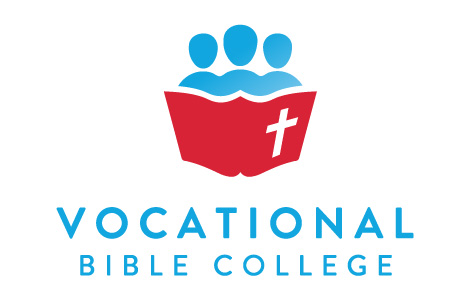Building Up The Whole Body: Everyday Discipleship
These articles are part of a series that I’ve written about making disciples of ‘everyday people’. Each one can be read on its own, but if you’d like to gain a greater understanding of how my thoughts around this important topic have developed, you may wish to read the full series of articles in order.

About the author
Andrew Beddoe grew up with a heart for unreached people groups. He assumed, growing up in Australia, that this would mean going overseas. But when Andrew was in his early twenties, God began to open his eyes to an unreached people group in Australia – people he has come to call ‘everyday people’. So God gave Andrew the idea to train everyday Christians for ministry and service through the Vocational Training and Education Sector where many learn their trade and vocation.
It is Andrew’s conviction that in order for churches to reach and disciple everyday people, they need everyday Christian leaders. He is grieved that everyday people are not better represented in Reformed evangelical churches. In 2010, Andrew left international student work at Wollongong University with AFES to trial a pilot program with MTS called the Blue-Collar Ministry Apprenticeship.
After five years, he was so encouraged by the fruit of the ministry in the lives of the students that he started Vocational Bible College. He hopes this series of blog articles will be used by God to ignite an important discussion – one that prompts the changes needed to find the many lost everyday people missing from our churches.
Everyday people make up 74% of the Australian population 15 years and older. But they are far from making up 74% of people in our Reformed evangelical churches – both in Australia and around the world. It is shocking to consider that we may have been blind to such a large unreached people group living in our midst.
What can we do to reach the many everyday people living in our communities? We are not bringing these lost sheep home. And that means we’re not fulfilling God’s purpose for his world and his church.
In anticipation of a glorious future living in perfect unity, what is God doing in this world that we, his people, have the great privilege to participate in?
As disciples of Christ today, we too are to be examples to the world of God’s ultimate purpose: that all people, from all backgrounds, no matter how diverse, will be brought to unity under Christ.
If a homogeneous model is effective, perhaps an argument could be made for establishing specific congregations to reach and disciple everyday people. But is this model biblical? Is this God’s plan for the local church?
Does it really matter if everyday people and university-educated professionals are in different churches?
Unfortunately, the problem of asking what someone does for work goes deeper than just being interested in people’s occupations. Pride can make university-educated people in Western society value status so much that they look down on everyday people as less valuable or less intelligent because they have not achieved the same kind of education level and career status as them.
As well as being harmful to university-educated Christians and their community with each other, keeping conversations superficial and not sharing our failures can be a huge obstacle to everyday people joining our churches.
Have Reformed evangelical churches lost their conviction regarding the priesthood of all believers? By relying on experts to do the bulk of evangelism and ministry, churches are inadvertently communicating that ministry is for professionals and experts.
For lots of everyday people, education on the whole has not been a positive experience. This makes it extremely hard for everyday people to believe that they could ever contribute in Word ministries or leadership in local churches run by ‘professional’ people. And this further contributes to them thinking, ‘I don’t belong here.’
It’s only those who have ‘succeeded’ in our system who think everyone is given a fair go. Those who struggled to ‘succeed’ at school and didn’t go on to university can feel like second-class citizens – and to be honest, they are often treated that way.
Having everyday leaders in place – with the heart and experience to reach, disciple and train other everyday people – is crucial to the health of our Reformed evangelical churches.
How does the New Testament instruct us about making disciples; and what are the implications of these instructions for Reformed evangelical churches seeking to reach everyday people?
If we are to reach the everyday people in our communities who need to hear about Jesus, we need to reform our discipleship practices that are shaped by university-educated professional values – so that they can more closely align with the Bible’s methods of making disciples.
Are we ready to give up our professional values, preferences, habits and desires in order to make disciples of everyday people?
When everyday people find it difficult to feel comfortable in our Reformed evangelical churches, it’s often because they feel ‘second-class’ – judged or looked down on as inferior by university-educated professionals.
When we truly value everyday people and the gifts God has given them, and we disciple them effectively, it follows that people will begin to recognise that some everyday people have the character, convictions and competencies to become leaders in our churches, whether in voluntary or paid ministry positions.
How do we formally train everyday people for paid Christian ministry? While Higher Education (university) is a proven training pathway for our pastors, it often does not suit the gifts and learning styles of many everyday Christian men and women.
While most of what has been written in this blog series been directed to my university-educated brothers and sisters in Reformed evangelical churches, here I would like to say a few words to my everyday brothers and sisters.
